SUMMARY
This is AI generated summarization, which may have errors. For context, always refer to the full article.
![[OPINION] Anti-Marcos consciousness at Mariano Marcos State University](https://www.rappler.com/tachyon/2022/05/anti-marcos-consciousness-may-7-2022.jpg)
In the mid-1990s, I applied for a teaching position at the Mariano Marcos State University (MMSU), Ilocos Norte’s best university. In the Q and A that followed my demonstration teaching, I was asked whether I was an activist. Before signing our appointment papers, the then university president, Dr. Elias Calacal, met us newly hired teachers to make sure we were not troublemakers. He threatened not to sign the papers of anyone who was an activist.
Among the 10 or so new appointments, four of us were from the University of the Philippines: two each from Baguio and Diliman. The other Diliman graduate served as secretary-general of the radical student organization Gabriela and ran as councilor for the UP Diliman student council. Three of them were joining the Social Sciences department. I was joining the English and Humanities Department. (Another UP Baguio graduate would join me shortly after).
That all our appointment papers were signed that day meant we had negotiated with power. We had played a tactical game – we kept quiet about our (own brands of) activism. We needed a job, and it was too late to change course. By that time, it was already around the middle of June. We did not even ask Dr. Calacal why he was averse to activists.
Why, indeed?
A few months before my joining the university, members of the MMSU community held rallies denouncing Calacal’s corrupt activities. There followed a purge of those who participated in those rallies. At the College of Arts and Sciences (CAS), two members of the Social Sciences department were falsely identified as leaders or participants by another member of the same department. According to one of those falsely tagged, this senior male colleague forced the Student Council president, CAS fourth year students, and other students to sign a document attesting that they “masterminded” or were involved in the rallies. This male colleague deliberately sacrificed them to win favor from Calacal.
When I was there, I remember the newly appointed faculty adviser of the university’s student publication, Sirmata (Vision) being called to Calacal’s office. It takes very little imagination why he wanted to speak to the adviser who would later confirm that Calacal had, to put it diplomatically, given ideas about what and what not to publish. Calacal also spoke to the university student council president.
As one could clearly deduce from the above, the ability of students and faculty members to freely express their thoughts and opinions was seriously curtailed. There were severe consequences for those who dared to challenge authority, who dared expose irregularities. You were swiftly punished for standing up. You were quickly reminded to know your place. You could be falsely accused by your own colleagues. There simply were far too many no-go areas. It was there that I first heard the advice “Sursuruem ti agsala iti tokarda.” Learn to dance to their tune.
For those of us who were on yearly contracts, such advice was vital for our continued employment. For those of us used to expressing an opinion and who believed that being able to speak your mind constituted and was constitutive of our pedagogical practices, such advice was both painful and enraging. Bite your tongue. Compromise. Sell out. Survive.
How can I teach my students critical thinking and help them break free from a culture of silence if I condemned myself to a self-imposed prison sentence? I remember beginning my research paper writing classes with a story of three frogs in a well who can see or describe the world vastly differently because of where they are in that well. How can we examine and interrogate the world around us, how can I help my students achieve conscientization if we start from a position of seeing nothing, hearing nothing, and saying nothing?
Loyalty and reverence for Ferdinand Marcos was sacrosanct at the university. I remember saying something negative about Marcos and his family and a senior member of our department retorted, “Dagitay agindadalus dida ammo nga agbugbuggoda iti bugguong nga inigges.” (Those who are pretending to be clean do not realize they are washing their hands in salted fish sauce infested with maggots).
According to Louis Althusser, schools and universities are ideological state apparatuses (ISAs) whose function is to reproduce and perpetuate the capitalist system. In other words, the educational system, together with repressive state apparatuses (RSAs such the government, military, police, courts, prisons) is instrumental in maintaining the social and economic hierarchy premised on the exploitation of the working class.
In addition to being an ISA in Althusser’s sense, MMSU is also an instrument of social formation dominated by, and loyal to, Marcos. The succession since 1986 of Marcos governors and representatives of Ilocos Norte’s second district (of which Batac, the location of the university’s main campus, is a part) as well as representatives of both the first and second districts who were either Marcos loyalists or relatives ensured that the university remained a bastion of Marcos loyalism. Strong Marcos loyalism in the university among teachers and students hardly got disturbed because there was nobody in power to challenge, and willing to start shattering, the myth.
In Ilocos, Marcos Sr. continues to be seen as a god — faultless, benevolent, worthy of worship. It is therefore not surprising that support for the Marcoses from MMSU staff and students remains to this day very strong. It is safe to assume a big majority of them is pro-Marcos, reflecting the support for the Marcoses from the general population.
University presidents who felt they needed the patronage of the powerholders, even if they were anti-Marcos, must have thought it wiser not to antagonize the governor and House representatives. I understand that university officials need to have good working relationships with provincial officials. But that should not be to the point of becoming ideologically servile to Marcos loyalism.
During the launching of the university’s Center for Ilokano and Amianan Studies on September 29, 2009, a former colleague in the English and Humanities department recited an Ilokano poem extolling Ferdinand E. Marcos. That hagiographic poem was written by one of contemporary Ilokano literature’s finest writers and Ilokano language’s foremost scholar, linguist, and advocate.
It is intriguing and symbolic that the poem was recited, and the center was launched, a day after the anniversary of the former dictator’s death. Who and what is the new center for? I am relieved that its current chief has a critical position on the Marcoses.
On the other hand, there seemed to be a direct pipeline between the BA English Studies program and the governor’s communications team, especially during the time of Imee Marcos. The program’s top graduates (and even some of its teachers) became employees at the capitol. A social science teacher became Imee Marcos’ chief propagandist.
There are encouraging signs that contending positions are being allowed or fighting for space, especially those that go against dominant thinking and practices. Recently, a robust discussion occurred around an image of a man holding up a placard that said, “MMSU students for #LeniKiko.” That someone, presumably an MMSU student, would have the audacity to make such a bold claim speaks not only to the student’s courage but also to the existence of a space that has been opened over time for non-Marcos aligned entities to feel confident enough to claim and speak for others.
An MMSU teacher who has been explicit about where he stood on the Marcos issue has not been summoned by his bosses to explain himself. I’d like to think he has not been threatened with suspension or dismissal. To be sure he has received criticism. That expressing anti-Marcos positions can get you vilified shows how radical and activist having an anti-Marcos consciousness in Ilocos Norte and MMSU already is.
The university should defend and protect the right of dissenters to interrogate and re-evaluate the Marcoses.
The intellect of a university is determined by the quality of discourse it fosters. MMSU should foster an environment in which a healthy debate about Marcos – his record and legacy as well as people’s attitude towards him – could happen. This includes making accessible and protecting “subversive” (which might simultaneously be anti-Marcos) materials in its library collection. In September 2021, Kalinga State University, Isabela State University, and Aklan State University removed subversive materials published by the National Democratic Front (NDF) or related to the peace talks between the NDF and the Philippine government from their libraries at the behest of the military/state security agencies. According to a source, in case there were subversive and/or anti-Marcos materials in MMSU’s libraries, they would likely be removed if asked by the security agencies as the director of library services is a Marcos loyalist.
It would be good for teachers to develop a sociological imagination and exercise reflexivity, that is, start with questioning their stance towards Marcos and loyalism. This will entail a reeducation of themselves, a process that is necessary to re-shape their teaching. What will they teach to students? How will they teach it? Taking this interrogative stance leads to an examination of their position, that is, their implication in this epistemological process. What is their role in knowledge production and transmission? What is their role in Ilokano and Filipino society?
The university must also begin asking uncomfortable questions and dealing with inconvenient truths. One of them concerns the university’s name. Why honor and glorify an individual unworthy of such an honor? Must the university continue to be part of whitewashing history to suit a family’s narrative? The university can avoid these questions now, but it can’t forever.
One of my favorite rumors is that about a university official being summoned by the governor for suggesting that the university’s name MMSU be changed to Ilocos Norte State University (INSU). I love this rumor so much I wish it were true.
Now or in a distant future, INSU or Northern Luzon State University sounds really good. – Rappler.com
Roderick Guerrero Galam is a Senior Lecturer in Sociology at Oxford Brookes University. He is author of The Promise of the Nation: Gender, History, and Nationalism in Contemporary Ilokano Literature and Women Who Stay: Seafaring and Subjectification in an Ilocos Town, both published by the Ateneo de Manila University Press.
Add a comment
How does this make you feel?

![[OPINION] The kids are alright: When college students organize political demonstrations](https://www.rappler.com/tachyon/2022/04/the-kids-are-alright.jpg?fit=449%2C449)
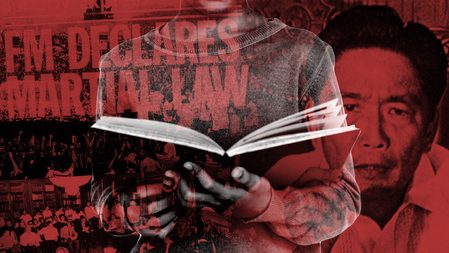

![[WATCH] In The Public Square with John Nery: Preloaded elections?](https://www.rappler.com/tachyon/2023/04/In-the-Public-Square-LS-SQ.jpg?resize=257%2C257&crop=414px%2C0px%2C1080px%2C1080px)
![[Newspoint] 19 million reasons](https://www.rappler.com/tachyon/2022/12/Newspoint-19-million-reasons-December-31-2022.jpg?resize=257%2C257&crop=181px%2C0px%2C900px%2C900px)

![[OPINION] The long revolution: Voices from the ground](https://www.rappler.com/tachyon/2022/06/Long-revolution-June-30-2022.jpg?resize=257%2C257&crop=239px%2C0px%2C720px%2C720px)
![[OPINION] I was called a ‘terrorist supporter’ while observing the Philippine elections](https://www.rappler.com/tachyon/2022/06/RT-poster-blurred.jpeg?resize=257%2C257&crop_strategy=attention)


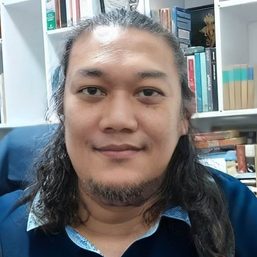

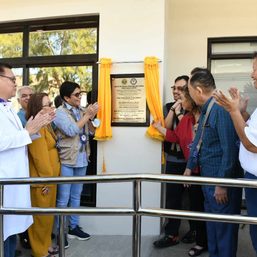
![[OPINION] If it’s Tuesday it must be Belgium – travels make over the Marcos image](https://www.rappler.com/tachyon/2024/04/tl-travel-makeovers-marcos-image.jpg?resize=257%2C257&crop_strategy=attention)


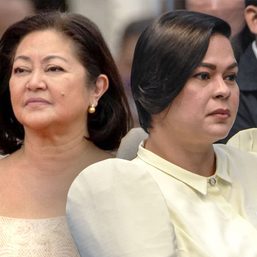
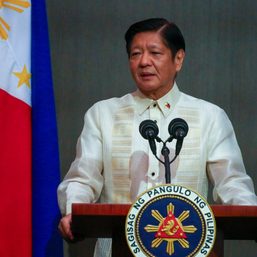
There are no comments yet. Add your comment to start the conversation.